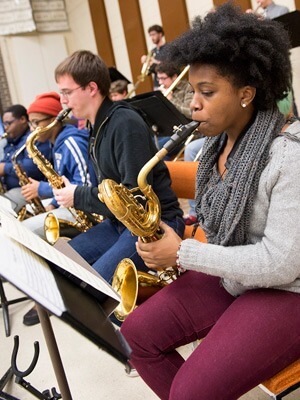The NIU PLUS Task Force has released a set of potential curricular reforms in response to the declining enrollment and student disinterest of our existing general education program.
It is important for the entire NIU community to seriously consider these changes for us to make NIU a competitive destination of choice for both first-year and transfer students.
In addition to the three general education models that propose a reduction in the credit-hour requirements for a native student, what other specific changes are proposed?
One of the dominant themes that emerged is the need to better integrate the entire four-year baccalaureate curriculum, and the Task Force has identified some options for doing so.
The first option is to expand the UNIV 101 experience, an optional course delivered to incoming first-years students. This one credit-hour course, which has been proven to be effective at improving student success, could be made a requirement for all incoming first- year and transfer students, or could even be repeated as a second- and third- year requirement.
A second option is to add an Enhanced Communication Credit requirement in order to improve the writing and oral communication skills of NIU undergraduates. The general education core competency courses (COMS 100, ENGL 103, and ENGL 104) represent solid introductory courses, but they are often perceived as disconnected from the major studies and student interests. This option creates three 1- to 3-credit hour upper-division courses for both writing and oral communication that departments could rely on to enhance communication skills in their major degree programs, linking one or more of those courses to “integrative” written or oral communications courses.
A third option is to add a Culminating Experience requirement. This option creates a one or two-course requirement that exposes all major studies students to one or both of the student learning outcomes of collaboration and synthesis. These courses will vary depending on the field of study, and could include existing departmental courses such as senior seminars, capstone projects or practicums.
 A fourth option is to credentialize or require High Impact and Experiential Learning practices. National data indicates that such experiences increase retention and graduation rates. To foster our students, NIU can better employ these experiences by credentialing them on student transcripts, certifying such experiences or creating a credit-bearing course for experiential learning opportunities.
A fourth option is to credentialize or require High Impact and Experiential Learning practices. National data indicates that such experiences increase retention and graduation rates. To foster our students, NIU can better employ these experiences by credentialing them on student transcripts, certifying such experiences or creating a credit-bearing course for experiential learning opportunities.
A final option is to employ an Electronic Portfolio System to integrate the curriculum by directly linking student course work to learning outcomes. ePortfolios are considered a high impact practice and national data indicates they improve: retention and graduate rates; reflection and deep social learning; preparation for productive careers and meaningful lives. They are already used extensively by various programs such as First Year Composition, and they could be employed either within the general education program or for all students.
These reform efforts are imperative for improving the success of our graduates and assuring the success and longevity of NIU in the 21st century. Please take the time to review these proposed options and give us your feedback by no later than Thursday, May 1.
Michael Kolb is general education coordinator and professor of anthropology at NIU.

